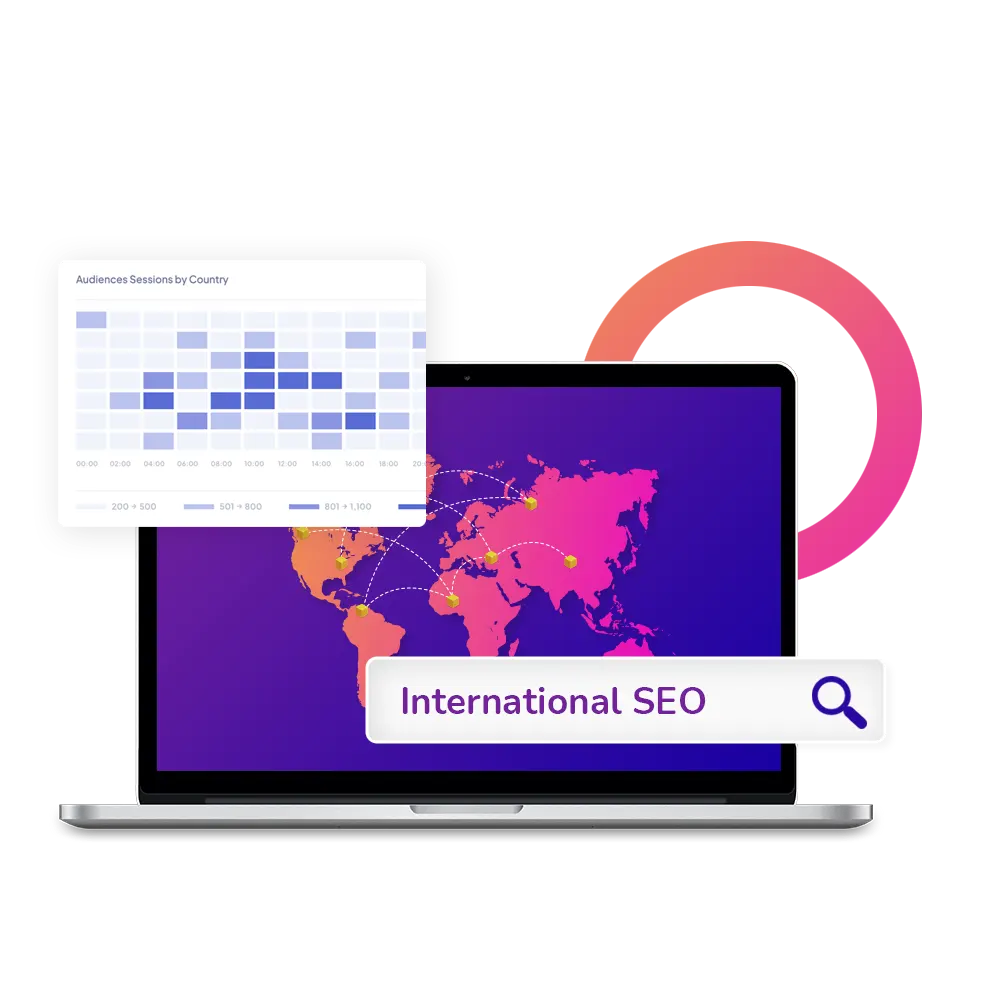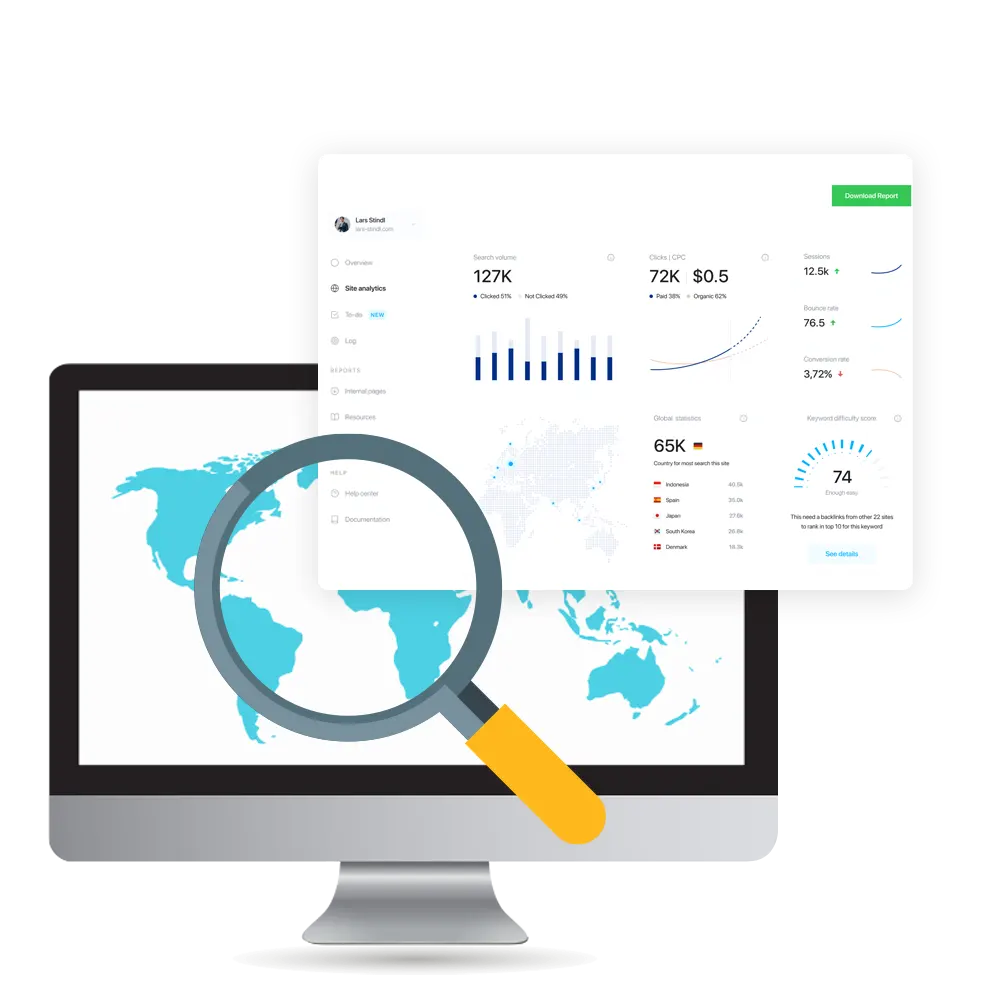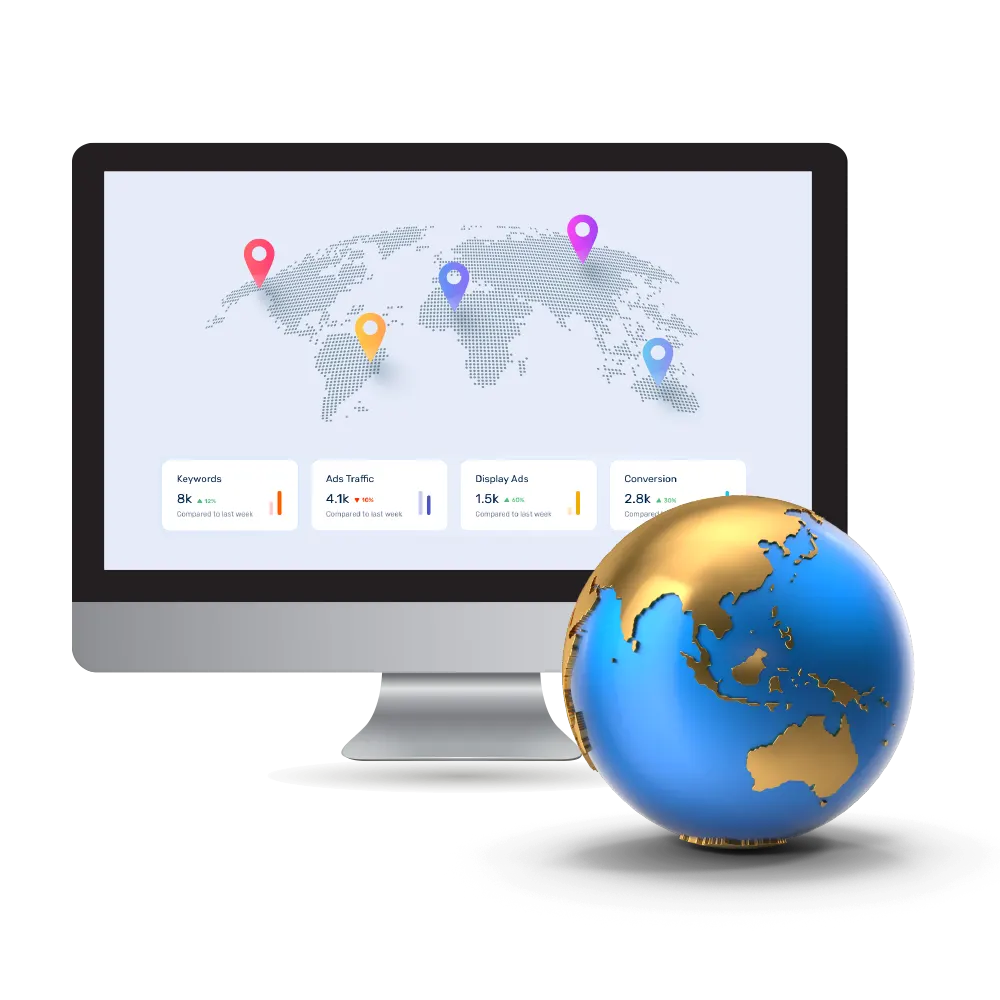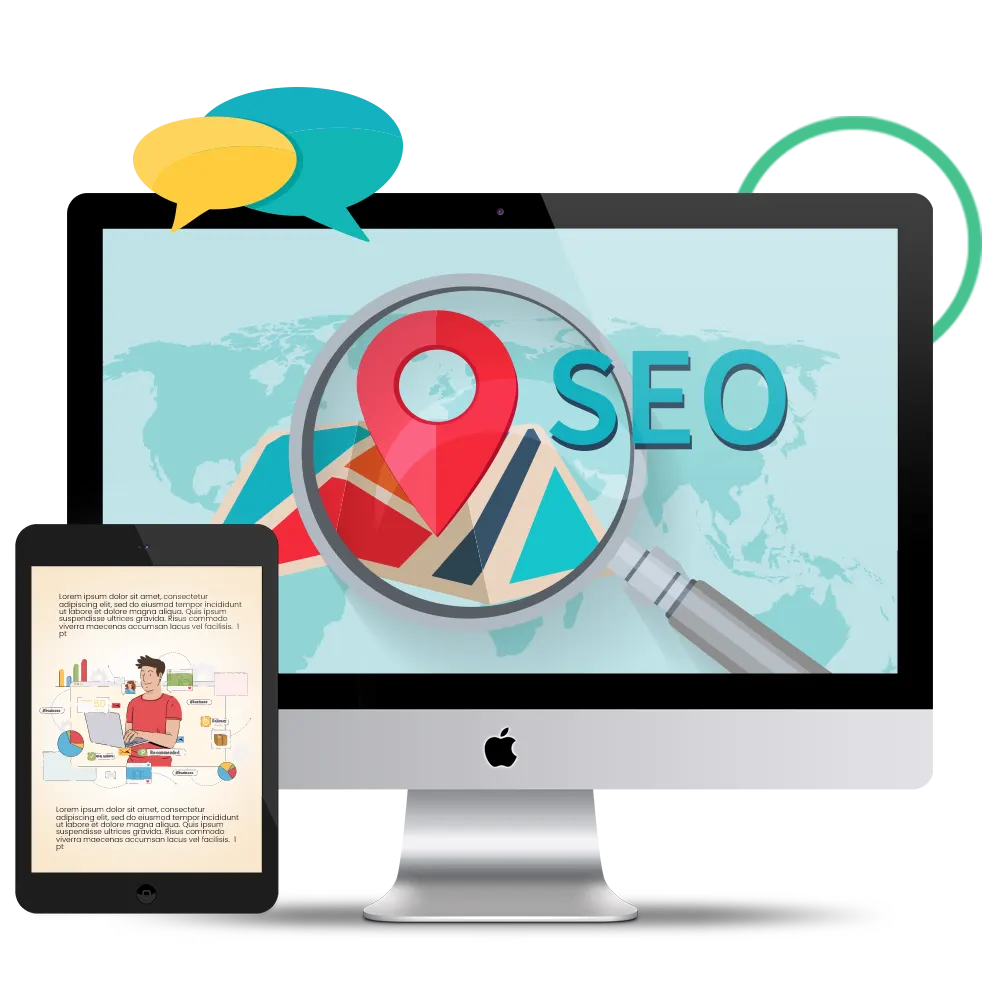
International SEO
Better connect with your international audience (local audiences across countries) and boost global sales through results-driven international SEO practices.
The power and appeal of local language is quite amazing. Studies show that 40% of global consumers are reluctant to buy a product that is listed in a language other than their native tongue. Thus, it is crucial to optimize your website for international appeal, if you want to sell in global markets. Businesses are increasingly adopting international SEO strategies to win over global audiences (local audiences across the globe).
The definition
Let us examine what exactly is international SEO. It is optimizing a website and its content using multiregional SEO and multilingual SEO strategies to ensure higher visibility in search engines like Google. The aim is to drive organic traffic from multiple countries in multiple languages. International SEO enables search engines to clearly identify the countries where your company wants to target customers. It also tells search engines the languages you want to use to attract customers from diverse regions.

The mechanism of international SEO
Google and other search engines use algorithms that match search results to the language and location of the user. International SEO works by informing search engines that your site is relevant for searchers based in a particular country or searchers using a specific language.
International SEO relies on techniques such as language targeting, hreflang tags, designated URL structures, and other localization strategies to engage customers across the world.

Why is international SEO important?
The significance of international SEO is that it helps increase the visibility of your product or service in global markets. You get to establish a stronger customer base in various regions, and this ensures better conversions.
International SEO can ensure global growth for your business. Tailoring your content and targeting it to various countries in their own languages is crucial for business growth if you want to sell in global markets. By providing a global user experience, you can elevate your business as a global brand.


Elements of a strong international SEO strategy
An international SEO strategy can bring in results only if it is adaptable to various regions or countries. What works for a region may not necessarily work for another.
International SEO must factor in cultural and language differences. The key is content localization. Answers need to be provided in native tongues, and the engagement needs to fit cultural contexts across the buyer journey. It takes the right planning and the right technology to incorporate localization in any business’s global growth strategy. Tools like translation management systems (TMS) are available to achieve this. As the best international seo agency in Dubai, Volga Tigris can offer you the most cost-effective international seo services for your business to flourish globally.

Best practices for international SEO
The first step in formulating an international SEO strategy is to identify your target audience and their needs. Then the right market approach needs to be adopted. Language-based segmentation is good if your products are the same globally. If not, you need to have dedicated country websites with own international SEO approaches.
Competitor analysis is another crucial aspect, and incorporating this into your International SEO will help you take advantage of new opportunities. You can identify your current traffic metrics using Google Analytics. Optimizing your website for regions where you have a strong target audience is a good start. Domain names matter in creating dedicated country-specific websites. The names must ignite the right brand associations and responses from local audiences. Wrong or culturally mismatching domain names can spell disaster.
International SEO doesn’t mean immediately optimizing your content for various countries and languages. Do it in a phased manner. Dedicated URLs for various localized content make sense.
You can even use a single domain, but with subdirectories (or subfolders) for hosting country- and language-specific pages. This approach is ideal for businesses that have diverse audiences within a single market.


The hreflang attribute
The hreflang attribute specifies the language and geographical region targeted by the content. Hreflang attributes help prevent duplicate content issues associated with multiple language versions of your website. Pages in local languages help your website in achieving higher rankings in local searches, apart from ensuring a better user experience to local users. This leads to better conversions.

Focus on locally relevant keywords
The right keywords that matter to local audiences are crucial in international SEO. It is important to adapt your keywords to match local search patterns. Tools like Google Keyword Planner is helpful in finding out the monthly search volumes for keywords in the relevant markets.
Automatically redirecting visitors and/or search engines to specific language pages based on IP addresses or browser settings is not a good strategy in International SEO. Suggesting localised pages at the top of the website with links will help search engines know about alternative page versions.


Localized content & link building
The content should be relevant for the local audience. Designing a landing page for the target audience with fitting content is a good approach.
For international SEO, links have different values depending on backlinks. Local links have great impact on search results, and as such you need to have a strong link building strategy for each page.
Frequently
Asked Questions






It is optimizing a website and its content using multiregional SEO and multilingual SEO strategies to ensure higher visibility in search engines like Google. The aim is to drive organic traffic from multiple countries in multiple languages.
International SEO will help increase the visibility of your product or service in global markets. In other words, you can build a stronger customer base across countries, and gain more conversions.
International SEO greatly supports your business growth. You can grab new opportunities in fresh markets







